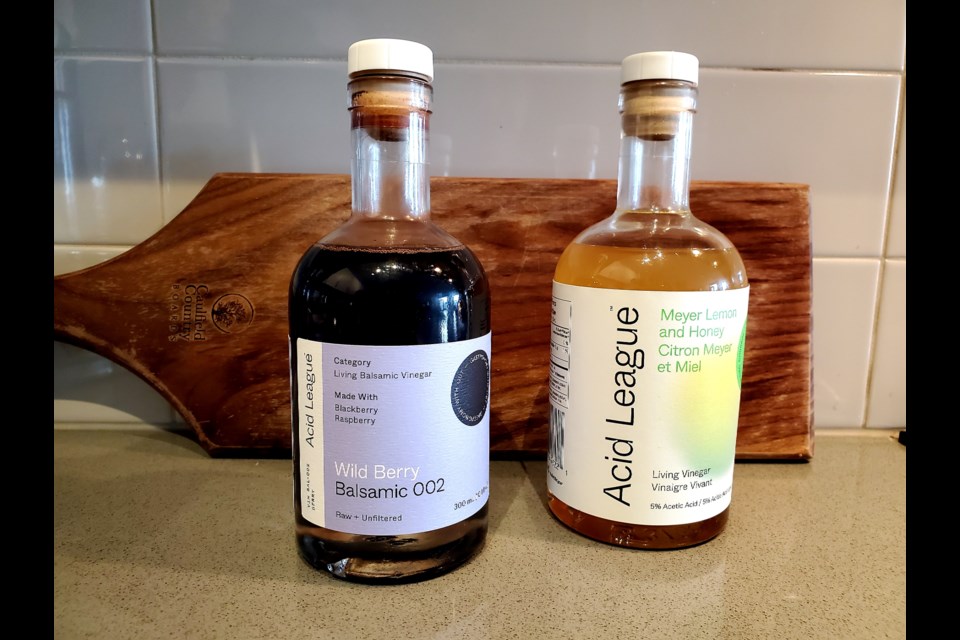Long before we had refrigerators or freezers, humans dried and fermented foods to keep them longer. More recently we pickled and canned foods to extend seasonal produce for the off-seasons.
All these methods can affect both the texture and the flavour of the food, but only one method increases the health benefits of consuming the item being preserved.
What do kombucha, kimchi, sauerkraut, sourdough bread and vinegar all have in common? They are all fermented foods.
Fermented foods are more popular than ever, but they have been around for centuries. Fermented foods are not limited to one culture, and every culture has its take on this ancient method of preserving food.
Fermentation simply takes carbs and converts them into alcohol or acids. Therefore, the taste can be strong or distinctive. This process also promotes the growth of probiotics or beneficial bacteria. This bacterium is why fermented foods are trending as health-promoting and immunity-boosting. Fermented foods can be easier to digest and if consumed daily can aid in overall gut health.
Some of these foods may not appeal to all palates as they are somewhat of an acquired taste but others, like vinegar, can be used in many ways from dressings and marinades to tasty beverages and condiments. Mixing vinegar with other ingredients makes it far more palatable.
Vinegar can be traced back to 3,000 B.C. The word vinegar means “sour wine’ and has been also known as “poor man’s wine."
The more common varieties are wine, rice or apple cider vinegar. In the '90s, North Americans were introduced to balsamic vinegar although this Italian vinegar has been around since the 12th century.
Unlike other wine vinegars balsamic vinegar is not produced from wine, but rather, wine must. The cities of Modena and Reggio Emilia in Northern Italy are where they originated and where they are still made today following ancient old recipes and techniques. The lesser-known, southern Italian equivalent is called vincotto. It is also made from reduced wine must and aged in barrels.
Not much has changed in the world of vinegars for an exceptionally long time and many of us reach for the same bottle every day to dress our salad. Personally, I tend to use balsamic in the winter months and lighter, white wine vinegars in the warmer months.
I was recently introduced to a new line of vinegars from a local, Guelph-based company that just might be the newest thing in vinegars since balsamic vinegar became mainstream 30-plus years ago. Acid League produces modern, living vinegars that are “gut friendly, fermented with premium fruits, vegetables, herbs, and spices with bold flavours."
These are not your typical, run-of-the-mill vinegars.
Of the four Acid League founders, two are University of Guelph food science graduates. Guelph alumni, Allan Mai and Cole Pearson, along with Scott Friedman and Rae Drake, who is also their creative director, wanted to create products that had the “culinary scene meet food science,” as told by Mai.
With fermented foods trending and not so much new happening in the vinegar space, the timing was perfect when they incorporated in August of 2020. Consumers wishing to add more fermented foods to their diet more regularly have so many options to choose from and as a result their vinaigrettes, dressings, beverages and condiments will never be boring. They have plenty of recipes using their products posted on their website.
Their inaugural, raw, unfiltered vinegars come in 10 varieties including, but not limited to, cabernet port living vinegar, strawberry rosé living vinegar, Meyer lemon honey living vinegar, mango jalapeno living vinegar, and apple cider maple living vinegar. There are some experimental editions like saffron tomato living vinegar that illustrates this company is still exploring new flavour profiles and you can still expect the unexpected.
All of these are available at retailers across the country as well as specialty grocery stores here in Guelph. The Living Pantry Collection, available exclusively online, offers a “fresh take on old favourites and new innovations to revive your cooking." Included in this collection is a wild berry balsamic living vinegar and Vermouth rosso living vinegar among others.
Even the simple, modern packaging in a clear distinctive bottle illustrates that the natural, unfiltered vinegars still contain the “mother of vinegar” or the slimy substance at the bottom of the bottle that ensures that all the health benefits are there until the last drop!
When I spoke to Mai in the final days of 2021, he was excited to tell me Acid League is moving production from Mississauga to Guelph in 2022. Now that’s a win/win for local foodies who wish to support our local economy!


